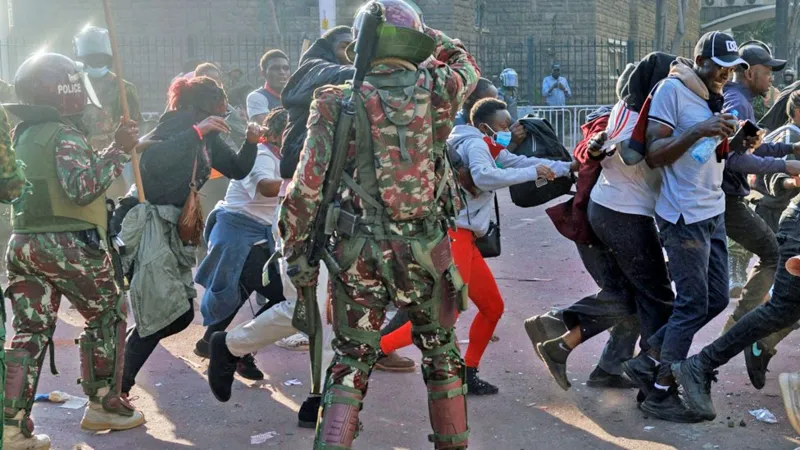In recent weeks, mounting pressure has emerged for a thorough investigation into the actions of the Kenya Police and Army, following reports suggesting that both entities have been implicated in serious misconduct. Human rights organizations, local communities, and the international community are increasingly demanding accountability, prompting discussions about the need for reform within these institutions.
Alarming Allegations Surface
Investigative reports released by credible sources have revealed disturbing accounts of extrajudicial killings, excessive use of force, and human rights abuses attributed to the Kenya Police and Army, particularly in conflict-ridden regions such as the Rift Valley and along the borders with Somalia. Various NGOs, including the Kenya National Commission on Human Rights (KNCHR) and international watchdogs like Amnesty International, have documented cases whereby civilians have suffered at the hands of security forces in what many are labeling as abuses of power.
A prime example of this was evidenced during recent operations aimed at countering terrorism and gang violence, where reports indicated that security personnel engaged in indiscriminate shootings and punitive raids on local populations. Eyewitness accounts and testimonies collected by human rights organizations paint a grim picture of law enforcement actions, which many believe are disproportionate and violate international human rights laws.
Calls for Accountability
In light of these revelations, various stakeholders have joined forces, demanding an independent investigation into the conduct of the police and military. The National Assembly of Kenya has faced mounting pressure from civil society and some political leaders to initiate hearings into these serious allegations. Advocacy groups argue that without accountability, the cycle of violence and abuse will continue, further eroding trust in public institutions tasked with ensuring the safety and security of citizens.
Prominent human rights activists are calling for the establishment of a special tribunal to investigate these allegations, akin to efforts seen in other countries facing similar struggles with their security forces. They argue that such a mechanism would need to operate transparently and impartially to build public confidence in the findings and outcomes.
Political Dimensions of the Crisis
The situation has not only attracted domestic scrutiny but has also garnered international attention. United Nations officials and foreign diplomats have expressed their concerns regarding the treatment of civilians during security operations. Their statements have underscored the imperative for Kenya to uphold human rights obligations and international standards in law enforcement practices.
Moreover, the government of President William Ruto is under increased scrutiny, considering the strategic importance of security in the nation’s development agenda. As Kenya remains a crucial partner in the fight against terrorism and organized crime in East Africa, it effectively faces a dual challenge of upholding human rights while ensuring national security.
Implications for Kenya’s Future
The implications of these allegations are significant, threatening to deepen existing divisions within society and exacerbate the climate of mistrust surrounding law enforcement agencies. The demand for accountability, if met with transparency and genuine reform, could serve as a pivotal moment for Kenya’s democratic credentials and its commitment to human rights. Failure to address these issues, conversely, could lead to civil unrest and weaken public confidence in the government.
Conclusion
As pressure mounts for a thorough investigation into the Kenya Police and Army’s conduct, the government’s response will be critical in determining the future trajectory of human rights and rule of law in the country. The world will be watching closely, as the outcome of these calls for accountability could either reinforce or undermine Kenya’s reputation on the global stage. As this story continues to unfold, it encapsulates the broader struggle for justice and human dignity that resonates across borders.
Email Us on editorial@nnafrica.com













